Secreted Proteins, Historically Difficult to Screen, are an Underleveraged Class of Biologics with Proven Therapeutic Potential
Secreted Proteins Communicate Naturally to Induce:





Advantages of Secreted Proteins
- Natural signaling molecules
- Highly specific to their targets
- Evolved potency
- Safer and more cost-effective than cell and gene therapeutics
Examples of Proteins Turned into Blockbuster Therapeutics

Discovery Strategy – Guided by the Biology of Stem Cell Signaling
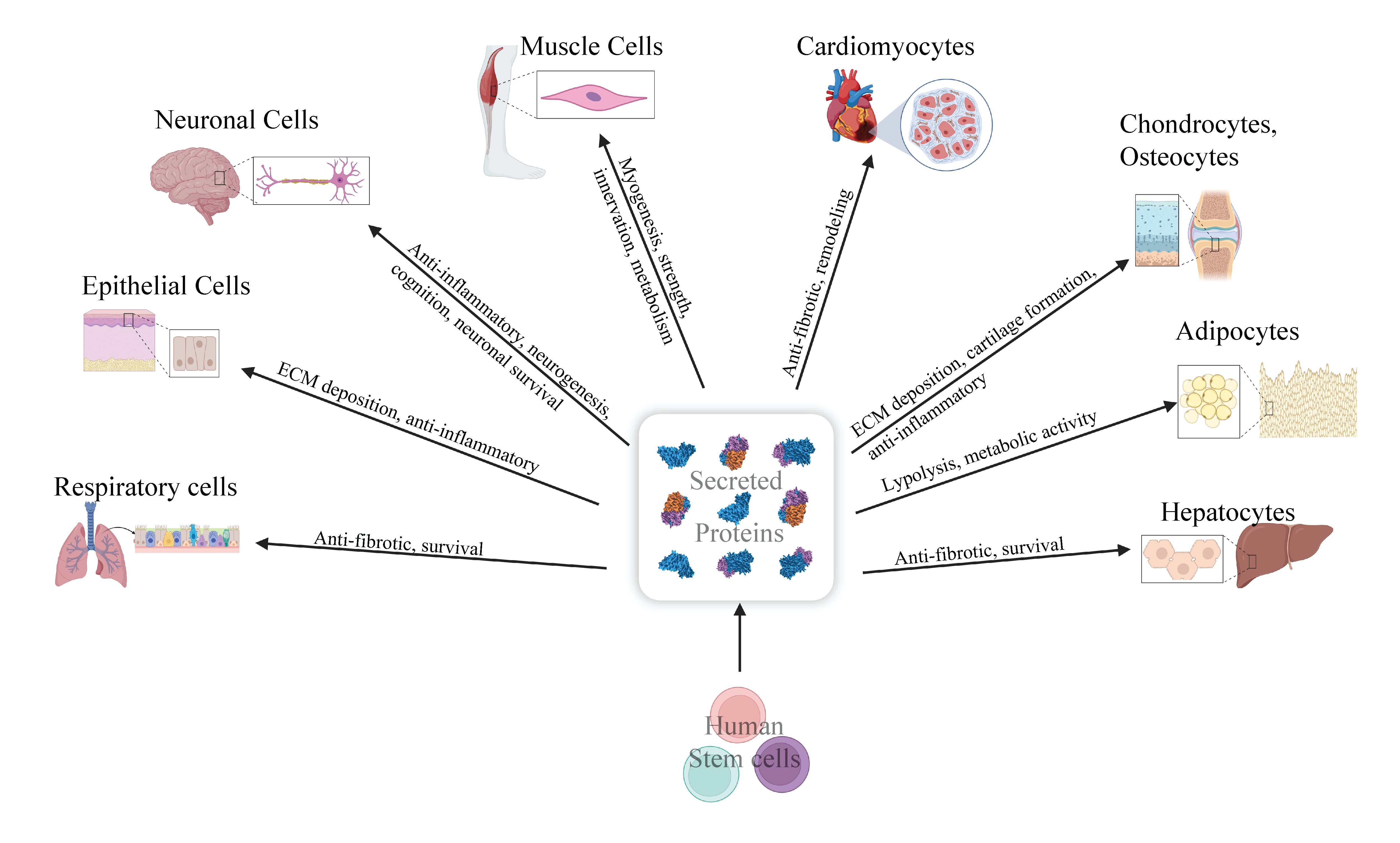
Juvena’s discovery programs share a unifying theme of diseases which are treatable by trophic and/or immunomodulatory signaling, the core function of human pluripotent and multipotent stem cell- secreted signaling proteins. Human stem cells secrete proteins that modulate regeneration and inflammation with high therapeutic potential (Kim et al. 2022, Yousef et al. 2013, 2011, 2014, Arnold Caplan 2017, Daneshmandi et al. 2020, Li et al. 2019, Kehl et al. 2019, Lopez-Verrilli et al. 2016, Phuong-Uyen et al. 2020).
Juvena’s discovery programs are focused on diseases with:
- Juvena’s discovery programs are focused on diseases with:
- A degenerative (loss of cell number or type) or inflammatory etiology
- Activity in cell therapy trials
- Tissue targets addressable by a biologic
- Major unmet medical need
Juvena’s Disruptive Platform Could Enable the Investigation of the Therapeutic Potential of Secreted Proteins in a Systematic Manner
Which protein could be the right treatment or target for any given disease when there are over 20,000 protein-coding genes in humans and over 70,000 recognized human diseases? This would lead to >1.4 Billion potential therapeutic mappings to test.
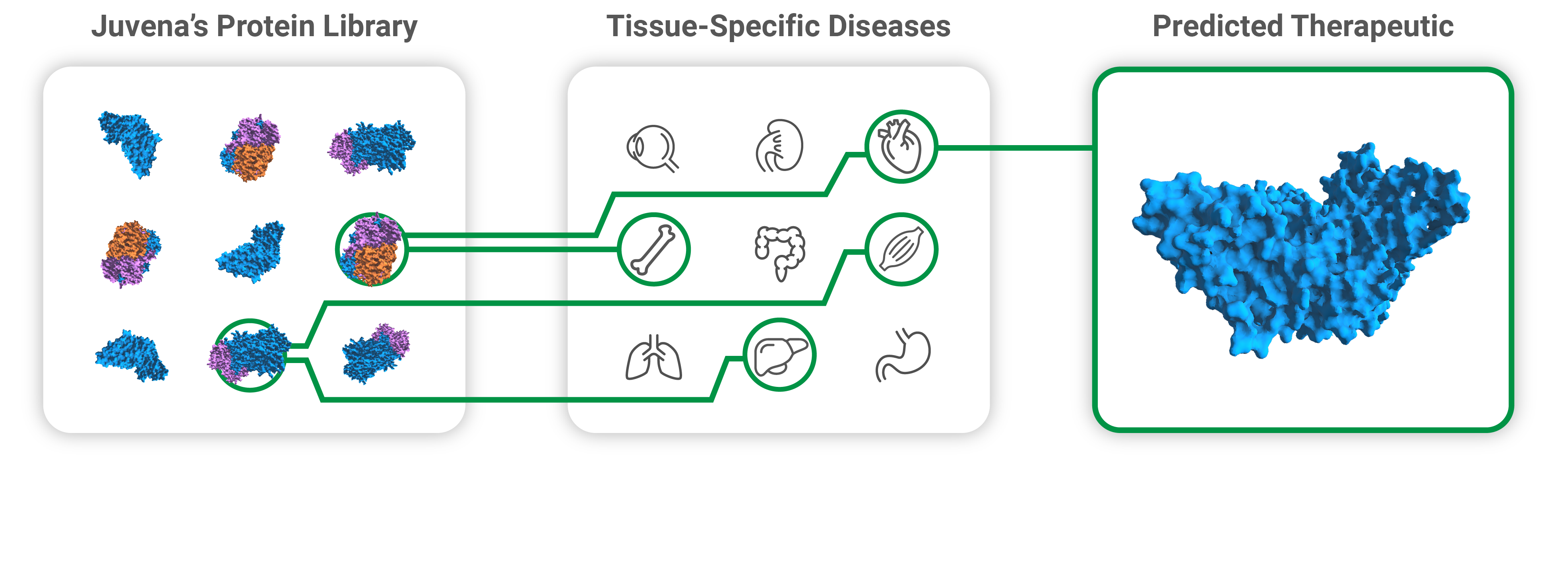
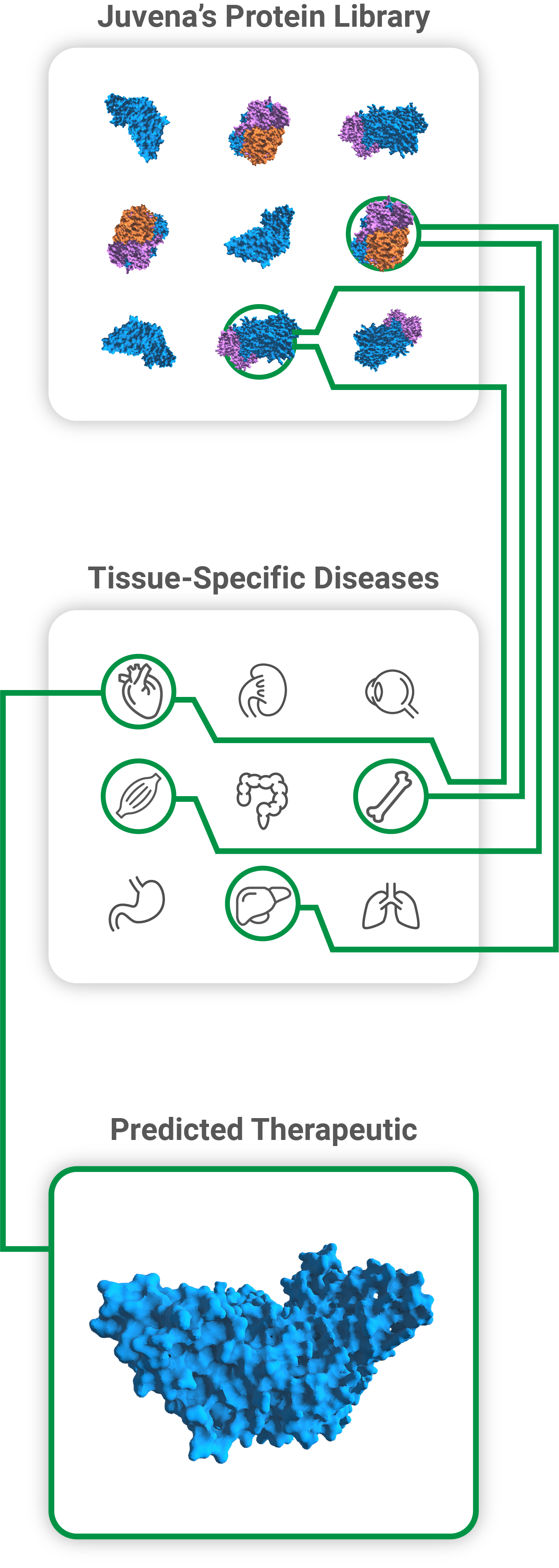
Despite the various successes that protein therapeutics have witnessed, secreted proteins have been underleveraged by the pharma industry. Underlying this is the challenge to applying computational and high-throughput screening techniques, which have been successful with small molecules, to protein drug discovery.
Juvena’s Computationally Driven Platform for Biologics Drug Discovery and Development
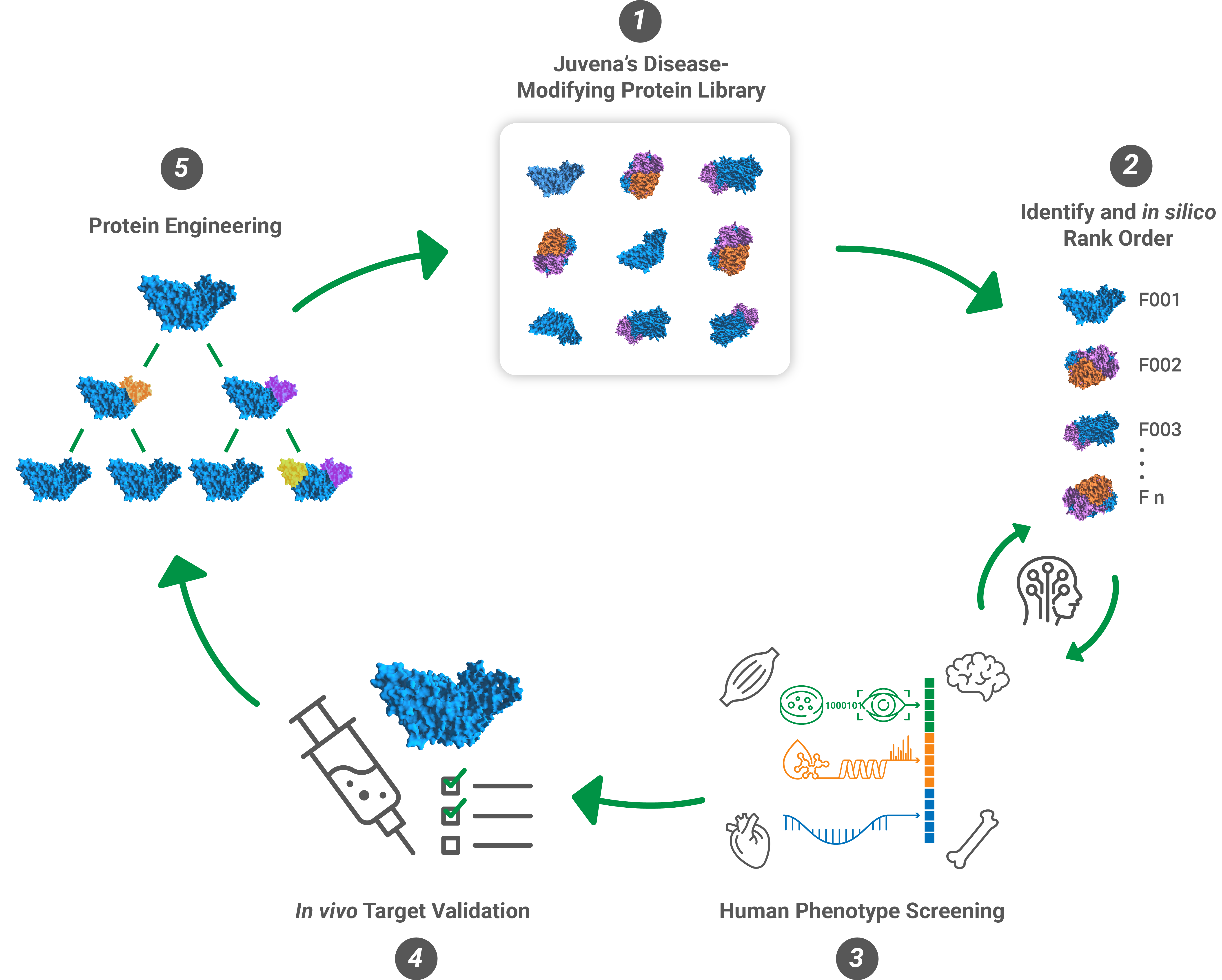

Juvena’s machine learning-enhanced biologics drug discovery and development platform identifies lead therapeutic candidates from a proprietary pro-regenerative protein library to screen, validate, and engineer into tissue-specific medicines for degenerative diseases.
By testing machine learning-enabled therapeutic protein predictions with the innovative applications of quantitative proteomics, transcriptomics, and computer vision, we feed high-dimensional, multimodal data into a compounding database enabled by our growing human therapeutic protein library derived from mining the secretomes of human pluripotent stem cells.
Juvena’s Multi-Dimensional Library Accrues Compounding Data with Each Cycle of Drug Screening Informing Therapeutic Potential for New Indications
Juvena’s Multi-Dimensional Disease-Modifying Protein Library
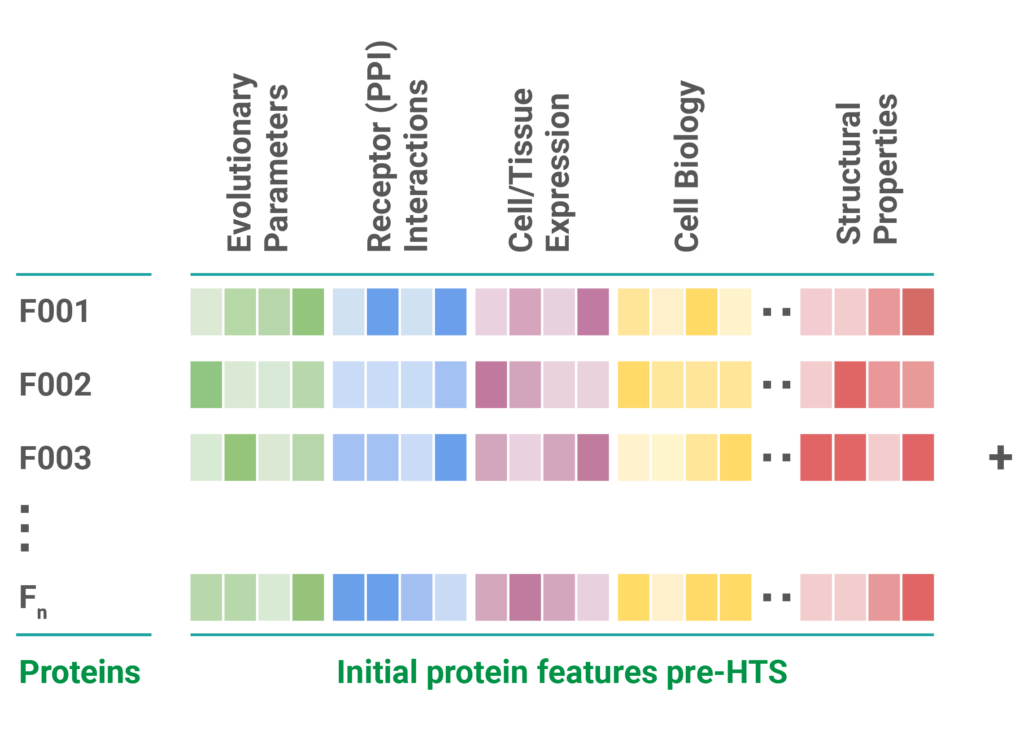
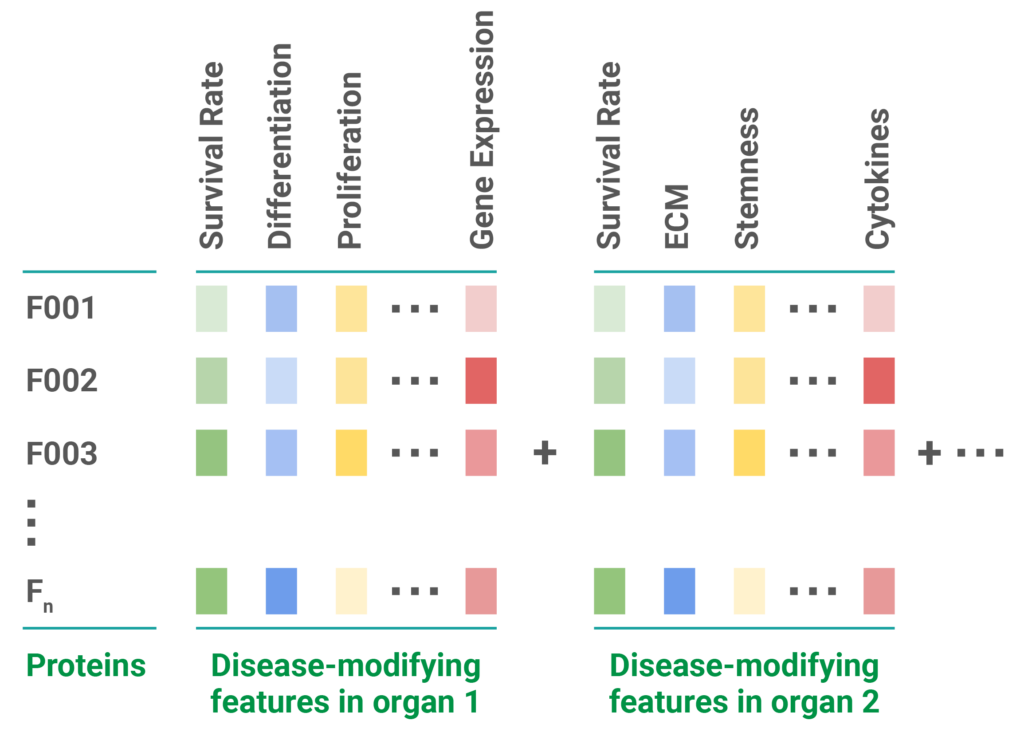
Patent Pending
The library that Juvena is curating is a multi-dimensional map of proteins and their diseases-modifying effects across different organs and indications. Combined with deep learning models, this library allows Juvena to identify and rank therapeutic candidates more cost-effectively and much quicker than traditional methods.


